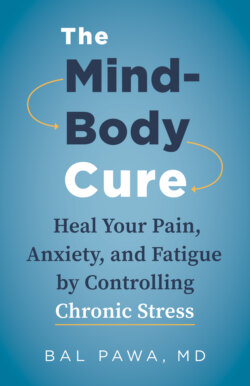Читать книгу The Mind-Body Cure - Bal Pawa - Страница 44
На сайте Литреса книга снята с продажи.
➤ Turn a Negative Bias into a Positive One: Story, Savor, Smile
ОглавлениеMotivational speaker Mel Robbins talks about the importance of story, savor, and smile as three ways to change the way the brain encodes a memory.5 How do we relate the events to our subconscious? What is our story? Are we the victim? Do we feel hopeless and trapped? Can we recognize a pattern? When good things happen, our negativity bias means we are less likely to pay much attention. Yet, the mind is a powerful storyteller with a vivid imagination full of pictures and sensory information. When the mind is collaborative, it tells a positive story and remembers the event as positive for future use. Feel-good chemicals flood the body each time the story is told.
To reinforce a positive story, Robbins recommends we savor, or make a conscious effort to create and embed, those positive experiences. Research supports that idea: prolonged activation of a brain region called the ventral striatum is directly linked to sustaining positive emotions and reward.6 For example, if you win a running race (or receive recognition), take the time to revel in the admiration, enjoy the sense of accomplishment, praise yourself for your effort, and enjoy the honor rather than minimizing the event to go on to the next goal. Enjoy and savor it on a multisensorial level: hear the cheering crowds, appreciate the weight of the medal around your neck, welcome the warmth of the sun on your back, embrace all the hugs afterward. Don’t focus on the next race you will enter. If you don’t stop to savor the moment, your mind will gloss over this success and your brain will not hardwire the memory.
To further enhance a memory, smile. A smile is a natural human response to something pleasant. We use muscles to smile, and we memorize the positive emotion that goes with the smile. Once you have a good story memory and you have savored it on a sensory level, use your smile muscles to further embed the memory. So even when you may not feel like smiling, the physical act of smiling triggers a more positive signal in the brain because of muscle memory. When it comes to smiling, “fake it till you make it” is not a bad thing when the alternative is a negative mindset setting you up for disease.
TRY THESE ADDITIONAL STEPS to master your conscious brain mindset.
